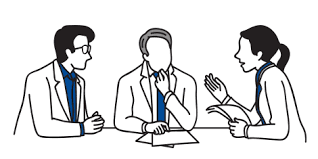The literate filter
This is the first filter through which we should interpret reality.
Consider this question: "What do the words really mean?" Keep in mind the fact that Language is not just a way to communicate or interpret; language is a call to action or an inhibitor to action.
342
1.21K reads
CURATED FROM
IDEAS CURATED BY
The idea is part of this collection:
Learn more about problemsolving with this collection
Seeking support from others
Identifying the symptoms of burnout
Learning to say no
Related collections
Similar ideas to The literate filter
The ecolacy filter
This filter assists us in understand the layers of unexpected consequences. The question to keep in mind here is: “And then what?”
We may really understand a statement, we may quantify the effects of a proposed solution, but it is very important to also conside...
"Address" is a vague word
A lot of speakers will say, "We're going to address this issue." However, it doesn't mean you're going to solve the problem or take action. Try words like solve, fight against, or reduce, which communicate action.
Other sw...
Play the reluctant part
- Use your body language to communicate your reluctance, to communicate you're not really eager to make a deal: sit back from the table and keep the tension in your bodies low
- You can manipulate your voice to sound more reluctant: speak slowly and softly.
- Relu...
Read & Learn
20x Faster
without
deepstash
with
deepstash
with
deepstash
Personalized microlearning
—
100+ Learning Journeys
—
Access to 200,000+ ideas
—
Access to the mobile app
—
Unlimited idea saving
—
—
Unlimited history
—
—
Unlimited listening to ideas
—
—
Downloading & offline access
—
—
Supercharge your mind with one idea per day
Enter your email and spend 1 minute every day to learn something new.
I agree to receive email updates
